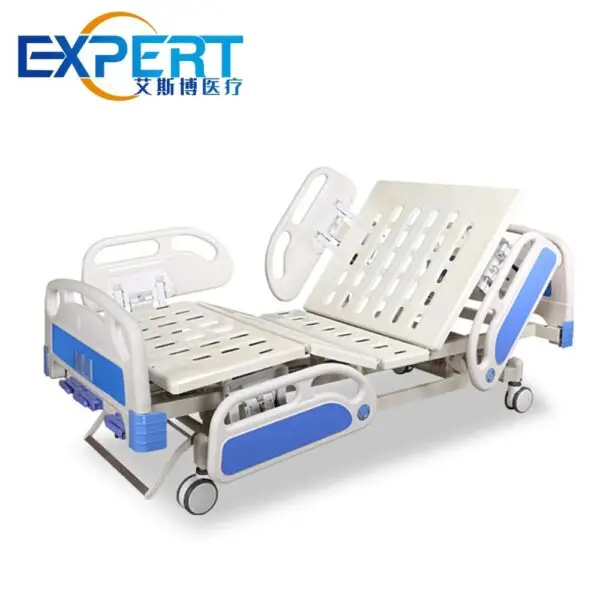Address
304 North Cardinal St.
Dorchester Center, MA 02124
Work Hours
Monday to Friday: 7AM - 7PM
Weekend: 10AM - 5PM
Welcome to My Blog!
Before we dive into the content, I’d love for you to join me on my social media platforms where I share more insights, engage with the community, and post updates. Here’s how you can connect with me:
Facebook:https://www.facebook.com/profile.php?id=100071234835011
LinkedIn:https://www.linkedin.com/company/74943205/admin/dashboard/
YouTube:www.youtube.com/@shandongexpertmedicalequip4695
TikTok:www.tiktok.com/@expertmedical
Now, let’s get started on our journey together. I hope you find the content here insightful, engaging, and valuable.
Choosing the right type of hospital bed for home use can be a daunting task. With various options available, it’s essential to understand the different types of hospital beds for home use to make an informed decision. These beds are designed to provide comfort, safety, and functionality for patients with varying medical needs. In this comprehensive guide, we will explore the different types of hospital beds available, their features, and considerations for selecting the best one for your home.

A hospital bed is a specialized bed designed for patients receiving medical care at home or in a healthcare facility. Unlike traditional beds, hospital beds offer adjustable features, mobility, and safety mechanisms that cater to the needs of patients who may require assistance or have limited mobility.
Hospital beds are beneficial for several reasons:









Manual hospital beds are adjusted by hand, typically using cranks or levers.
Electric hospital beds use a motor for adjustments, allowing for easy elevation and positioning with the push of a button.
Bariatric hospital beds are designed for larger patients, featuring wider frames and higher weight capacities, often exceeding 600 pounds.
Pediatric beds are specifically designed for children, featuring smaller dimensions and safety features tailored to younger patients.
Specialty beds cater to specific medical conditions, such as adjustable beds for patients with respiratory issues or pressure relief beds for those at risk of bedsores.
| Bed Type | Weight Capacity (lbs) | Adjustability | Ideal Users |
|---|---|---|---|
| Manual Hospital Bed | Up to 250 | Manual crank | Budget-conscious users |
| Electric Hospital Bed | Up to 350 | Electric motor | Users with limited mobility |
| Bariatric Hospital Bed | 600+ | Electric/manual | Larger individuals |
| Pediatric Hospital Bed | Up to 150 | Electric | Children |
| Specialty Hospital Bed | Varies | Varies | Patients with specific needs |
This table provides a comparative overview of different types of hospital beds for home use, highlighting their weight capacities, adjustability, price ranges, and ideal users.

When selecting a hospital bed for home use, consider the patient’s specific medical condition and mobility needs. Ask yourself:
Measure the available space in the room where the bed will be placed. Ensure there is enough room for mobility aids, caregivers, and other equipment.
Determine your budget, keeping in mind that while some beds may be more affordable upfront, investing in a higher-quality bed can lead to long-term savings in terms of durability and functionality.
Look for manufacturers that offer robust warranties and reliable customer service. A good warranty provides peace of mind, ensuring that you are protected against defects or issues that may arise.
Understanding the various types of hospital beds for home use is essential for making an informed choice that meets your needs and those of your loved ones. By evaluating the different options available, considering your specific requirements, and consulting with healthcare professionals, you can find the right hospital bed that enhances comfort, safety, and quality of care at home.
Key features to consider include adjustability, weight capacity, ease of use, safety features like side rails, and compatibility with various mattresses and accessories.
Hospital bed prices can range from $500 for basic manual models to over $10,000 for specialty beds with advanced features.
It is generally recommended to use a mattress specifically designed for hospital beds to ensure proper fit, support, and safety.
Regular maintenance includes checking and adjusting bed mechanisms, cleaning surfaces, and ensuring that safety features like side rails are functioning correctly.
Many insurance plans may cover the cost of hospital beds if deemed medically necessary. Always check with your insurance provider for specific coverage details.
